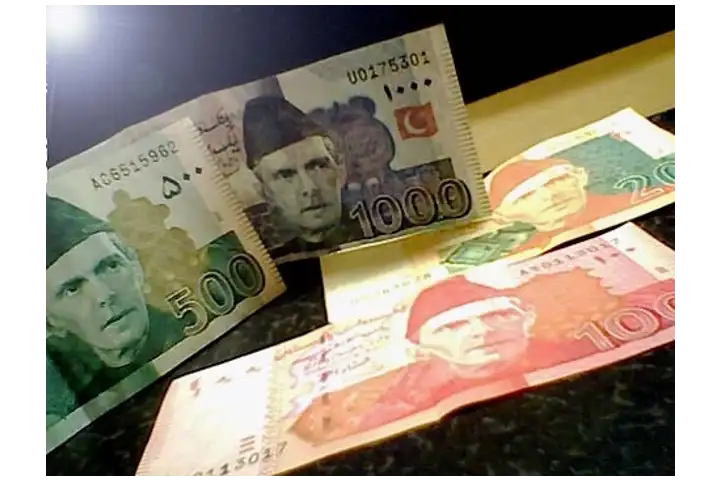

Pakistani rupee in a free fall mode
Pakistan’s political turmoil with a likely delay in general elections has once again led to deepening economic crisis with the (Pakistani) rupee taking a beating. Since August 14, when the interim government took charge under Caretaker Prime Minister Anwaar-ul-Haq Kakar, the (Pakistani) rupee has lost more than Rs 13 to a US dollar. On August 14 the rupee, which was valued at just below 294 against a US dollar, has now breached the 305 mark against the greenback.
Amid continuous fall in the value of the currency, Islamabad further raised petrol price by (P) Rs 14.91 per litre. The price of high-speed diesel (HSD) was increased by Rs18.44 per litre.
With this increase, the price of petrol in Pakistan has now touched (P)Rs 305.36 per litre from (P) Rs 290.45 and for HSD, it has surged to (P)Rs 311.84 per litre from Rs 293.40.
Electricity tariff has been steadily increasing as well. The increase in electricity and fuel charges are in line with the International Monetary Fund’s pre-conditions for the $3 billion financial assistance package.
The worst impacted are the common citizens. With rising inflation, many in Islamabad, Karachi, Lahore, Peshawar, Multan and Rawalpindi have now taken to the streets to protest. That apart the surge in power charges has also led to closure of many indigenous small and medium factories.
While pressure is building on the caretaker government to lower the electricity prices, Islamabad will find it tough to take any decision, even as it promised to look into the matter.
“It is bound by the IMF mandate, there is little that the government can do,” an analyst told India Narrative. Any reversal of the decision could jeopardize the bailout package which Pakistan desperately needs.
“These are hard times, indeed. Too many people are hurting too much. This will not only leave economic scars, it will leave social and psychological scars as well. The state is still not giving help to the people. It is not a high enough priority,” local newspaper Dawn noted.
The analyst added that the situation is set to become grimmer with elections now being delayed.
The South Asian nation is battling its worst economic crisis since independence. Unfortunately, the IMF deal will not ease the woes of the common people or even businesses anytime soon.
Also read: Amid uncertainty and multiple challenges, Pakistan to celebrate its Independence Day tomorrow
Israel Defence Forces Spokesperson Brigadier General Effie Defrin on Thursday said that Iran has expressed…
India's Hindustan Aeronautics Limited (HAL) and French engine manufacturer, Safran Aircraft Engines, signed an agreement…
India has emerged as a country with the third-largest growth in power generation capacity globally…
Prime Minister Narendra Modi hailed Indian chess grandmaster Divya Deshmukh for defeating world number one…
The family of detained Baloch leader Mahrang Baloch has accused prison authorities at Quetta's Hudda…
The QS World University 2026 Rankings bring great news for our education sector, as the…